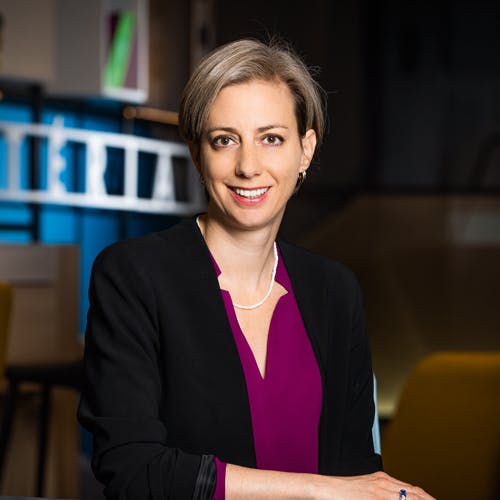Why have you added inclusion to the long-standing values on which Arkema bases its strategy?
Mélanie Jourdain: solidarity, responsibility, performance and simplicity are the four core values that have formed the basis of the Group’s culture since its inception, as well as our management of human resources. This year, we wanted to add inclusion to these values, coupled with the notion of diversity, because expectations on this subject are growing, across society and, of course, within Arkema, along with our actions concerning our environmental impact. For me, the social role of the company is obvious, and inclusion is a great source of human enrichment for our teams. Diversity and inclusion go hand in hand, and we work hard in our recruitment process and in our career management to make our employees feel included and happy in their role, whatever their profile, origin or background. A company where employees feel secure, recognized, listened to and included allows them to give the best of themselves. This is where inclusion is a key value, in order to support our talent, on an international level, to retain people and thus expand the Group with men and women keen to engage.
Are there indicators to measure our progress in terms of diversity and inclusion?
Mélanie Jourdain: We monitor two indicators in particular: gender balance -
the percentage of women - and diversity - the percentage of non-French employees
- in senior management and leadership roles. We also conduct regular internal surveys, particularly on engagement, which are an opportunity to ask employees if they feel included, if they’ve already found themselves in a discriminatory situation, if they don't feel they have access to the same opportunities etc. Measuring this sense of inclusion is essential to enable us to then work on specific action plans.
When it comes to gender balance, what are your goals?
Mélanie Jourdain: We want to promote the role of women and ensure they can access positions of responsibility. This is already the case at the highest level, but we still need to do more. We’re aiming for 30% of senior management or leadership roles to be held by women by 2030.
At the end of 2021, the figure was 24%. This is already very encouraging, but it takes time to build these pools of women, support them and train them. The dynamic we create will also benefit intermediate levels of responsibility and all women within the Group.
Does equal pay form part of inclusion?
Mélanie Jourdain: It's an integral part of the action plans enshrined in the Diversity and Inclusion charter that we're developing. The Group is strongly committed to measuring pay gaps, with a clearly held principle of equal work, equal pay. We focus not only on gender equality, but also on difference in the wider sense, whether this relates to social origin, nationality, culture, age, experience, physical condition, family situation etc. Every employee must feel that they benefit, without bias, from equal access to career and development opportunities. We’re not trying to erase the perceived differences in a team so that everyone looks the same, but rather to draw the best from each person’s profile by relying on collective intelligence.



